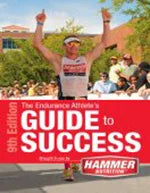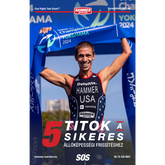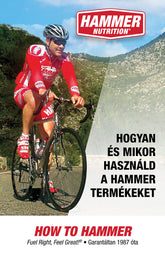What protein is the best?
By Dean Karnazes
If you’re like most athletes, you know protein has something to do with muscle. But protein is much more than that. Like carbohydrates and fat, protein is a critical nutrient your body requires every day to function properly. Protein helps repair damaged cells and tissue throughout your body, is used in hormone synthesis, and protein plays a number of other critical roles, including keeping your bones strong (calcium doesn’t do it all alone!).
Yet, just like with carbohydrates and fats, there are different forms of protein and different sources to get this protein from, and they have different effects on performance. By eating the right type of protein at the right time, you can maximize all the benefits protein has to offer!
Let’s start by explaining how the body assimilates dietary protein.
Whether from an animal source or plant source, protein is digested in two places: the stomach and the small intestine. In the stomach, special acids and other chemicals break down protein into amino acids; in the intestine, these amino acids are further broken down into organic compounds so small they can work their way into the bloodstream.
It’s here, in this combination of which amino acids the digestive process releases and how quickly they enter the bloodstream, that sets one protein source apart from another.
For this story, we’ll focus on two popular sources of protein: Whey protein and pea protein. Let’s start by explaining that whey protein is derived from milk, which may not be suitable for people with dairy allergies, while pea protein is vegan.
Once whey protein is consumed, it results in a rise in the amount of amino acids circulating in the bloodstream, which makes it a good choice for post-workout recovery. This is because 1-2 hours after you exercise, your body experiences a spike in protein synthesis. If you consume whey shortly after working out, your body can absorb the amino acids during this window, which is when it most needs the raw materials to rebuild.
Another great thing about whey protein is that if you have some prior to sleep, it boosts the release of human growth hormone (HGH), which the body utilizes for a great number of important functions.
Pea protein is vegan and hypoallergenic, so it’s suitable for vegans and those with milk allergies.
Pea protein is digested at a medium rate, which helps prolong satiety and placate hunger. The only downside to pea protein is that it’s not considered by some to be a complete protein due to its too-small amounts of the essential amino acid, methionine, so it needs to be combined with other protein sources for use as a primary dietary protein.
That’s why Hammer Nutrition Organic Vegan Protein also contains other all-organic protein sources—pumpkin, Sacha Inchi, spirulina, and chlorella—making it a complete protein, along with providing some other great benefits.
When it comes to whey protein, Hammer Nutrition Whey Protein is derived from 100% whey protein isolate, which is the most bioavailable protein on the planet. It’s also blended with L-Glutamine, making it ideal for maintaining and repairing lean body mass, supporting gut health, strengthening the immune system, and accelerating recovery.
During a challenging 6-day self-supported race across the Atacama Desert in South America, I used a combination of Hammer’s whey and pea protein nightly for both calories and recovery. Since bulk and space are important considerations during any self-supported race (everything you need must fit into the pack you’re carrying on your back), the powdered form of these proteins minimized weight and could be reconstituted with the daily allotment of water.
The formula worked well, and I managed to win the race overall and finish without excessive wear and tear on my body.
I hope this primer on protein helps provide the information you need to make informed decisions on how best to choose your protein source and when best to consume this protein. Experiment and find what works for you, and Hammer on!
-- -- -- -- -- --
Dean Karnazes is an ultramarathoner and Hammer Nutrition global athlete. He is a NY Times bestselling author and recipient of the President’s Council on Sports, Fitness & Nutrition Lifetime Achievement Award. Learn more about Dean at: Dean Karnazes Keeps Hammering











